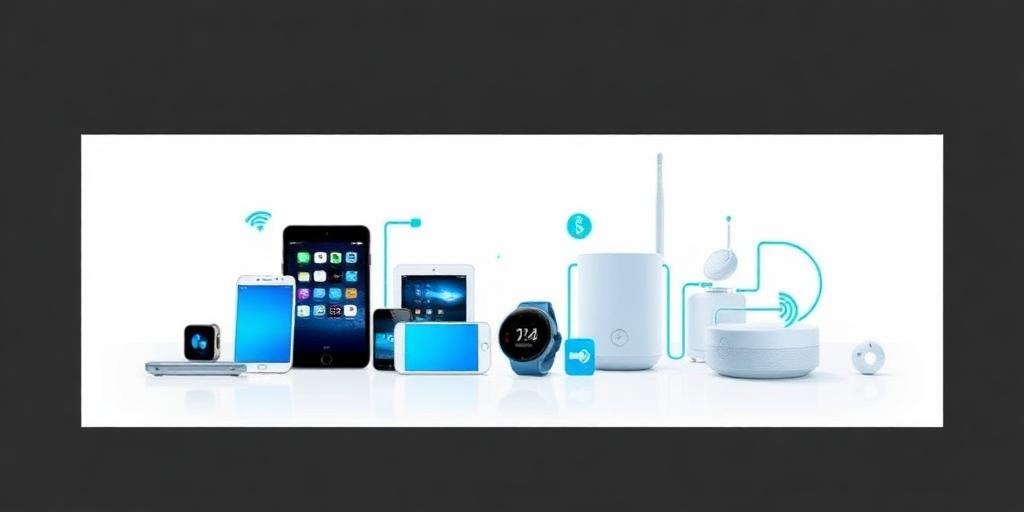The Pervasive Influence of Smart Devices on Daily Routines in 2025
Smart devices have rapidly evolved from novel gadgets to indispensable tools that significantly shape our daily routines. As we move into 2025, it’s crucial to examine the profound impact these devices have on how we live, work, and interact with our environment.
Enhanced Connectivity and Automation
At the heart of the smart device revolution lies enhanced connectivity. The Internet of Things (IoT) has seamlessly integrated various devices, creating interconnected ecosystems within our homes and workplaces. Consider these examples:
- Smart Homes: Thermostats, lighting systems, and security cameras adapt to our preferences, optimizing energy consumption and enhancing security.
- Wearable Technology: Smartwatches and fitness trackers monitor our health metrics, providing personalized insights and encouraging healthier lifestyles.
- Smart Offices: Intelligent systems automate tasks such as scheduling meetings, managing resources, and optimizing workspace utilization.
Transforming Communication and Productivity
Smart devices have transformed how we communicate and manage our productivity. Smartphones remain central to our communication, augmented by smart assistants that handle tasks such as:
- Voice-Activated Commands: Smart speakers enable us to control devices, access information, and manage schedules hands-free.
- Real-Time Collaboration: Tools like smart whiteboards and video conferencing systems facilitate seamless collaboration among remote teams.
- Personalized Information: Smart displays provide tailored news, weather updates, and reminders, keeping us informed and on track.
Impact on Health and Well-being
Beyond convenience and productivity, smart devices significantly impact our health and well-being. Continuous monitoring and personalized feedback empower individuals to make informed decisions about their lifestyles:
- Remote Patient Monitoring: Wearable sensors and connected devices enable healthcare providers to monitor patients remotely, improving outcomes and reducing hospital readmissions.
- Mental Wellness Apps: Smart devices offer tools for meditation, stress management, and sleep optimization, promoting mental well-being.
- Fitness and Nutrition: Activity trackers and smart scales provide data-driven insights, helping individuals achieve their fitness and nutrition goals.
Navigating Challenges and Ethical Considerations
While smart devices offer numerous benefits, it’s essential to address potential challenges and ethical considerations:
- Data Privacy: Ensuring the privacy and security of personal data collected by smart devices is paramount. Robust security measures and transparent data policies are crucial.
- Digital Divide: Bridging the digital divide and ensuring equitable access to smart technology is essential to prevent further societal disparities.
- Dependence and Over-Reliance: Finding a balance between leveraging smart devices and maintaining critical thinking and problem-solving skills is crucial.
Conclusion
As we journey further into 2025, smart devices will continue to evolve and shape our daily routines. By embracing these technologies thoughtfully and addressing the associated challenges proactively, we can harness their full potential to improve our lives and create a more connected, efficient, and healthy future.
